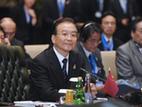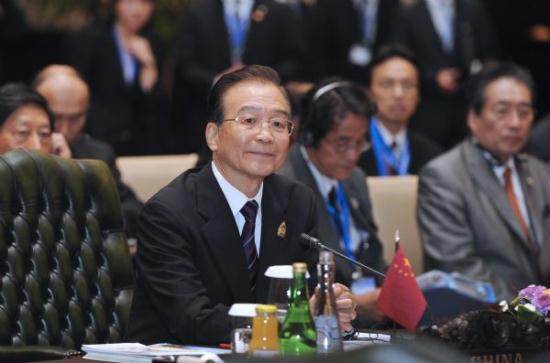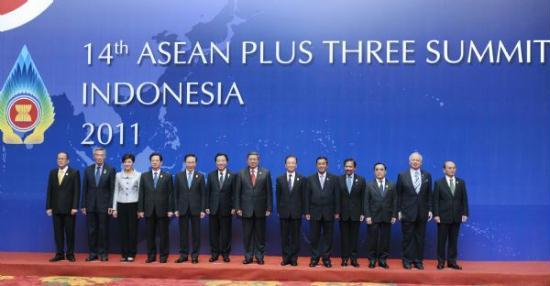| Videos | • Latest |
|
• Feature | • Sports | • Your Videos |
China, ASEAN mark 20 years of dialogue

 0 Comment(s)
0 Comment(s) Print
Print E-mail
CNTV, November 19, 2011
E-mail
CNTV, November 19, 2011
China and the Association of Southeast Asian Nations (ASEAN) have marked twenty years of dialogue in Bali, Indonesia. Premier Wen Jiabao met the leaders of the ten ASEAN countries, highlighting a string of opportunities for further cooperation. Friday's bilateral talks were a prelude to the full East Asia Summit, scheduled for Saturday.
Past achievements, and new opportunities.
During his meeting with ASEAN leaders, Premier Wen Jiabao said economic development should be at the very top of everyone's agenda.
|
|
|
Chinese Premier Wen Jiabao attends the 14th Association of Southeast Asian Nations (ASEAN) Plus Three Summit in Bali, Indonesia, Nov. 18, 2011. [Xinhua/Xie Huanchi] |
Trade between China and ASEAN members has increased thirty-seven fold over the past two decades. To continue the expansion, Premier Wen says more focus should be given to infrastructure -- particularly the construction of trade routes, on both land and sea.
Wen announced that China will offer ASEAN another 10 billion US dollars in loans and credit. It follows a similar pledge of 15 billion US dollars two years ago, which has so far funded more than fifty infrastructure projects across the region.
A joint fund is also to be created to promote cooperation in marine research, navigation safety, search and rescue, and international policing.
The talks come amid continuing disputes between China and some ASEAN countries, over maritime territory in the South China Sea.
|
|
|
Chinese Premier Wen Jiabao (6th R), with leaders of the Association of Southeast Asian Nations, Japan and South Korea, poses for group photo before the 14th ASEAN Plus Three Summit in Bali, Indonesia, Nov. 18, 2011. [Xinhua/Xie Huanchi] |
Premier Wen reiterated China's position that such disputes can only be solved bilaterally between nations directly involved -- and not by third parties.
China and ASEAN signed a declaration on South China Sea issues in 2002. Wen says China is willing to work with all ASEAN countries to fully implement the guidelines.
The Philippines had earlier tried to force the topic onto the agenda -- but the move was rejected by China and most ASEAN countries.
Despite the frictions, China is seeking to deepen its economic ties with ASEAN -- at a time when Asia is one of the few regions maintaining robust growth, during global economic gloom.








Go to Forum >>0 Comment(s)